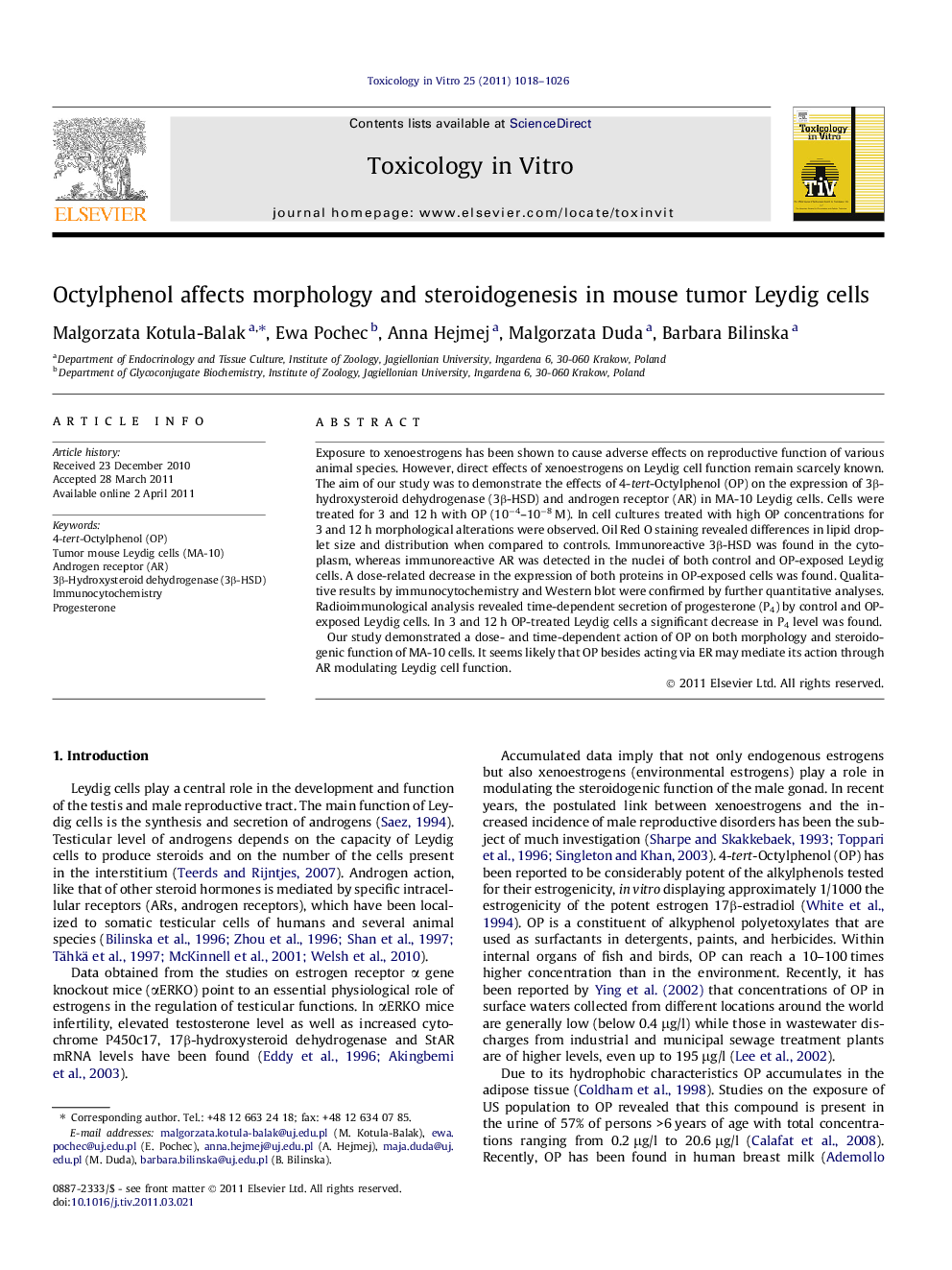| Article ID | Journal | Published Year | Pages | File Type |
|---|---|---|---|---|
| 2602609 | Toxicology in Vitro | 2011 | 9 Pages |
Exposure to xenoestrogens has been shown to cause adverse effects on reproductive function of various animal species. However, direct effects of xenoestrogens on Leydig cell function remain scarcely known. The aim of our study was to demonstrate the effects of 4-tert-Octylphenol (OP) on the expression of 3β-hydroxysteroid dehydrogenase (3β-HSD) and androgen receptor (AR) in MA-10 Leydig cells. Cells were treated for 3 and 12 h with OP (10−4–10−8 M). In cell cultures treated with high OP concentrations for 3 and 12 h morphological alterations were observed. Oil Red O staining revealed differences in lipid droplet size and distribution when compared to controls. Immunoreactive 3β-HSD was found in the cytoplasm, whereas immunoreactive AR was detected in the nuclei of both control and OP-exposed Leydig cells. A dose-related decrease in the expression of both proteins in OP-exposed cells was found. Qualitative results by immunocytochemistry and Western blot were confirmed by further quantitative analyses. Radioimmunological analysis revealed time-dependent secretion of progesterone (P4) by control and OP-exposed Leydig cells. In 3 and 12 h OP-treated Leydig cells a significant decrease in P4 level was found.Our study demonstrated a dose- and time-dependent action of OP on both morphology and steroidogenic function of MA-10 cells. It seems likely that OP besides acting via ER may mediate its action through AR modulating Leydig cell function.
► Octylphenol affects the morphology of MA-10 Leydig cells. ► In Leydig cells OP acts in a dose- and time-dependent manner. ► Expression of 3β-HSD and AR proteins is decreased in OP-treated cells. ► Progesterone level is reduced in OP-treated Leydig cells. ► OP may act through the AR modulating Leydig cell function.
